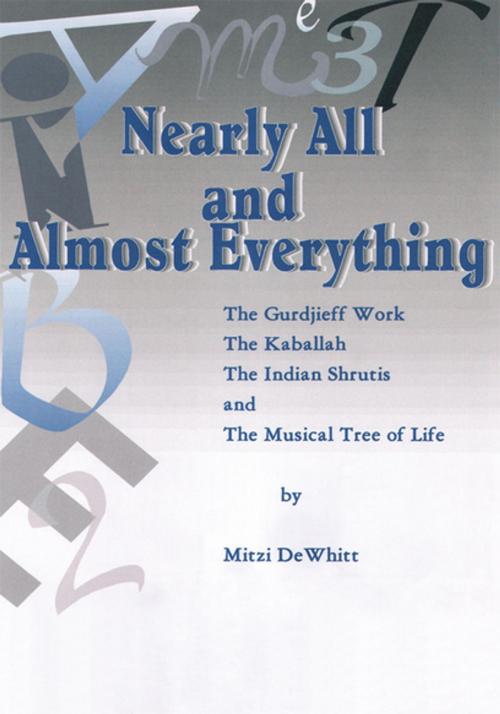Nearly All and Almost Everything
The Gurdjieff Work, the Hebrew Kaballah, the Indian Shrutis, and the Musical Tree of Life
Nonfiction, Religion & Spirituality, Philosophy, Metaphysics| Author: | Mitzi DeWhitt | ISBN: | 9781465332066 |
| Publisher: | Xlibris US | Publication: | May 12, 2005 |
| Imprint: | Xlibris US | Language: | English |
| Author: | Mitzi DeWhitt |
| ISBN: | 9781465332066 |
| Publisher: | Xlibris US |
| Publication: | May 12, 2005 |
| Imprint: | Xlibris US |
| Language: | English |
This musicological study, by persuasive explanation, shows how, adhering to certain exact ratios and proportions, music gains objective power. The inquiry is scientific, the solutions ingenious. Following unexplored and unconventional lines, the author brings together what, on the surface, appear to be three separate lines: Judaism, Hinduism, and the Gurdjieff Work. Their link is musical harmonics, or the magical science of connection between sounds.
The failure of modern musicians to achieve the magical effects long ascribed to music by the ancients is due to the prevailing ignorance of those who know nothing about the objective laws on which music is based. Ancient cultures knew how the laws of harmonics (or what comes in between the tones) could evoke metaphysical correspondences of a spiritual nature, as did Gurdjieff. The Hebrews encoded harmonics in their Tree of Life diagram, the Hindus incorporated the potent musical information in a secretive Music of the Path, and Gurdjieff enshrined it in the Enneagram symbol of the Work.
In this groundbreaking book, the author presents a provocative and engaging picture of how these laws work. The wealth of new information will have a profound impact on modern views of music and its laws.
This musicological study, by persuasive explanation, shows how, adhering to certain exact ratios and proportions, music gains objective power. The inquiry is scientific, the solutions ingenious. Following unexplored and unconventional lines, the author brings together what, on the surface, appear to be three separate lines: Judaism, Hinduism, and the Gurdjieff Work. Their link is musical harmonics, or the magical science of connection between sounds.
The failure of modern musicians to achieve the magical effects long ascribed to music by the ancients is due to the prevailing ignorance of those who know nothing about the objective laws on which music is based. Ancient cultures knew how the laws of harmonics (or what comes in between the tones) could evoke metaphysical correspondences of a spiritual nature, as did Gurdjieff. The Hebrews encoded harmonics in their Tree of Life diagram, the Hindus incorporated the potent musical information in a secretive Music of the Path, and Gurdjieff enshrined it in the Enneagram symbol of the Work.
In this groundbreaking book, the author presents a provocative and engaging picture of how these laws work. The wealth of new information will have a profound impact on modern views of music and its laws.















